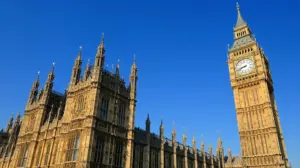What new arrangements exist under the new Personal Insolvency Act 2012?
Under the new Act there are a number of options available to those in difficulty with debt:
********Debt Relief Notices – (DRN)
This option allows people with little or no assets or income to have debts of less than €20,000 potentially written off. These debts are likely to be credit card debt and personal loans. In order to qualify borrowers must have a net monthly disposable income of €60 or less, assets of €400 or less, and must be resident in Ireland.
Net disposable income includes salary or wages, welfare benefits such as job seekers allowance, income from pension, rental income and contributions from other household members. Certain debts are excluded including court fines, child support and spousal maintenance.
An approved intermediary (MABS) helps the debtor in preparing a financial statement and submitting an application to the Insolvency Service.
The option cannot be availed of if 25% or more of the debts in question were created within 6 months of the application for a Debt Relief Notice
If the Notice is recommended by the Insolvency Service it goes for approval by the Courts. If this happens it remains in place typically for 3 years (which can be extended in certain circumstances) – this acts as a supervision period during this time the creditor is then prevented from pursuing the debtor for the debt or taking steps to recover additional amounts top what has been sanctioned.
While fees for intermediaries are yet to be determined no fee will be charged to the debtor;
If the debtor looks for further credit during the supervision period they must disclose that they are the subject of a Debt Relief Notice.
**********Debt Settlement Arrangement – (DSA)
This option covers loans with two or more creditors in the amount of €20,000 or more. The borrower will have to pay off a certain amount for up to 5 years and the balance may possibly then be written off.
A DSA allows for settlement of unsecured debt; secured debt is unaffected.
It is a once in a lifetime option and may be proposed by a debtor to one or more creditors for the settlement of unsecured debts.
The debtor must be insolvent and meet certain eligibility criteria. The option cannot be availed of if 25% or more of the debts in question arise within 6 months of the application
The debtor must provide a written statement of his financial affairs to an Insolvency Practitioner who manages any proposals to creditors.
The Insolvency Service will, if it is satisfied that the application is in order, issue a certificate to that effect and forward this to the courts who can then issue a protective certificate (lasting 70 days with provision for extension). This then limits further enforcement for that period. The Insolvency Practitioner must then notifies the relevant creditors, and invites submissions as to how the debts might be dealt with.
At a meeting, Creditors who hold not less than 65% in value of the debts due must approve the DSA.
If the DSA is approved by the court it takes effect once registered by the Insolvency Service in the Register of Debt Settlement Arrangements. It lasts for 5 years (with a possibility of an extra year) with the debtor discharged after this time.
********Personal Insolvency Arrangement – (PIA)
This option will apply specifically to mortgage holders and those with secured and unsecured debts of €20,000 to €3 million (at least one creditor must be secured). The process is similar in that the Insolvency Practitioner will make the application after the financial statement has been completed and 65% of the lenders again must be in agreement for some of the debt to be written down. A protective certificate also issues here if all is in order and the Insolvency Practitioner must then notify the relevant creditors of the issue of the protective certificate and the proposed PIA, seek creditor submissions and provide them with certain documents.
Again, those who avail of a Personal Insolvency Arrangement can only do so once.
Specific provisions are included which are designed to ensure that a minimum amount is payable to secured creditors and that any write-down does not reduce the amount to be paid to the secured creditor on the sale of the property below the lesser of the value of the security or the amount of the debt secured thereby. It also provides for revision if the property is subsequently sold for an amount greater than the written-down value of the debt it secured, unless agreed otherwise.
All secured debts (except family homes) are treated the same.
– a legal briefing from Kilkenny Solicitors Holland Condon




